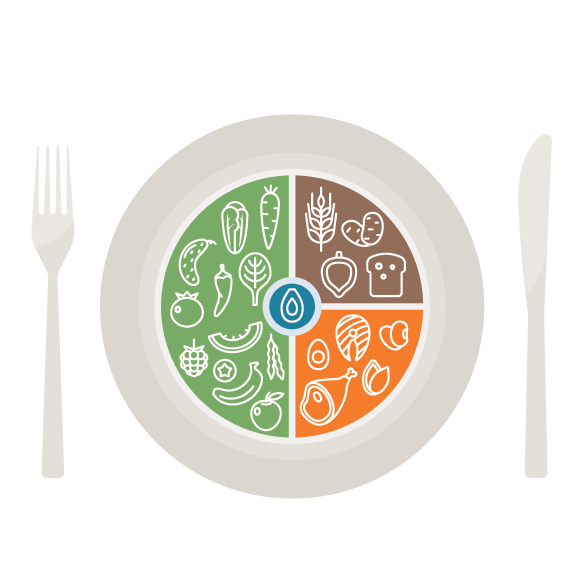Does diet really affect your health?

Date: February 15, 2022
Categories: Health Focused
Susanna W. Carter, RN, BSN, PCCN
Progressive Care Unit
DIET ARTICLE: DOES DIET REALLY AFFECT YOUR HEALTH?
The old expression “you are what you eat “may not be too far from the truth. The nutritional value of what goes into our bodies really does affect our overall health. According to the World Health Organization “Good health is essential for nutritional well-being as good nutrition is crucial for maintaining good health”. Just as a healthy diet helps protect us from non-communicable diseases such as diabetes, heart disease, stroke, and cancer, an unhealthy diet can pose the opposite.
Healthy diet practices are best started early in life but are beneficial to implement at any stage. The convenience of the grab-and-go food choices today are very appealing but may not be the best choices for our health. When choosing food options, we must consider the nutritional value of the calories we consume and the non-nutritional value. We all require food for energy, but often that energy (calories) exceeds what we actually need. We all have those days when we need that afternoon burst of energy. We pick up a sugary snack and feel great until our body realizes the imbalance of energy only to leave us craving more.

The key to a well-balanced diet is not to consume too much of a certain thing such as salt, sugar, and fats. We get bombarded with the latest food fad or trendy ingredient and lose sight of the balance. We can all reap some short-term benefits from that energy balance such as circadian rhythms, GI health, and healthy weights that transcend to long term benefits.
When we consider changing our eating habits, we often focus on foods we need to cut out rather than the foods we need to add. By incorporating more nutritional foods into our diet, it helps to alleviate non nutritional foods also known as “empty calories” without leaving us feeling deprived.
Forming any habit takes time is best achieved by planning meals and snacks as well as having them readily available. A well-balanced diet consists of reducing saturated fats to 10% of calories, trans fat to 1%, salt to less than 5 grams, sugar to less than 10%, and total fat to less than 30%. This may all sound complicated due to the time it takes to calculate the balance of calories versus nutritional needs, but can be broken down into a more simplistic picture.
Most processed, pre-packaged foods and snacks automatically exceed the daily recommendations for trans, saturated and total fat, salt, and sugar. Sports drinks, pasta, breads, flavored water, and condiments such as sauces contain a high amount of hidden sugar and salt. Good eating habits can begin by purchasing fresh fruits, vegetables, lean cuts of meat, adding fish and legumes into your diet. Trading white breads for whole grain, skim milk, using olive oil instead of cooking oil, baking instead of frying, and limiting alcohol are all ways to begin.
The Harvard Nutrition Source suggests making most of your meal vegetable and fruits – ½ of your plate. Go for whole grains such as oats, brown rice, barley and wheat – ¼ of your plate. Protein such as fish, poultry, beans, nuts, lean meats have power! -1/4of your plate. Healthy plant oils in moderation like olive, canola, soy, sunflower, and peanut do not contain trans fats. Dairy products should be limited to 2 servings a day. Drink plenty of water and limit alcohol intake to occasional. Here’s to a Healthy and Happy New!

